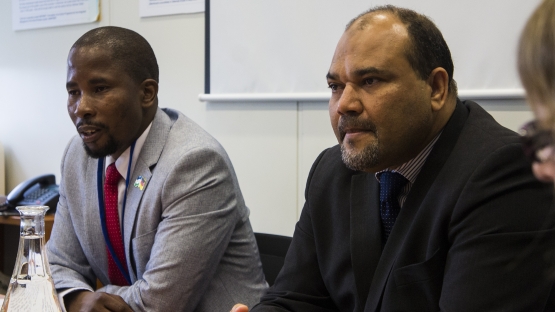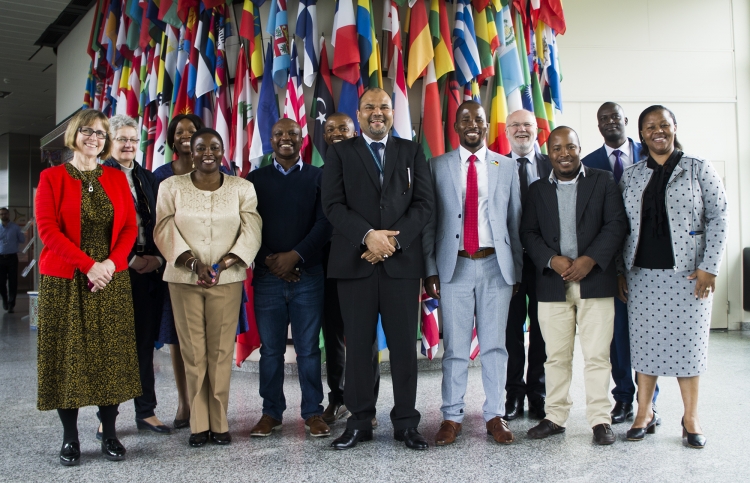Lesotho looks to open its first cancer facility in 2024 to provide local services for its increasing number of patients rather than sending them abroad for treatment. With its plan in an advanced stage, delegates from several Lesotho ministries joined IAEA experts for an intensive three-day meeting in Vienna last week, to finalise the centre’s specifications and roadmap.
With funding for the facility provided by the Lesotho government and specialist medical staff already undergoing training with IAEA support, the African country of 2.2 million people is in a good position to start building the centre in the capital Maseru and purchase the necessary equipment.
Lesotho currently spends almost US$7 million a year sending its cancer patients to South Africa and India for treatment and care. “This is a major scourge for our country. We have lost many lives due to cancer because of the lack of a radiotherapy facility,” said Mamasiane Tieho, Principal Secretary at the Ministry of Environment, Tourism and Culture, which is mandated to establish the country’s Radiation Protection Board. “It has been a long journey to get to this stage, but we are very happy to come here to finalise the centre’s roadmap and get things moving.”
Completion of the first stage of construction will enable the provision of chemotherapy and radiotherapy for around 1,000 patients a year, with some accommodation available for patients requiring longer periods of treatment. A second construction phase is then envisaged, which will extend the centre’s capacity to provide services for more day patients. The second phase will also add diagnostic and nuclear medicine facilities for both cancer and cardiovascular diseases.
Cancer is increasingly both a health and development issue for many low and middle income countries, with a growing number of cases putting more pressure on the government and family resources. According to the International Agency for Research on Cancer, the number of people expected to develop cancer in Lesotho each year will grow by almost a quarter by 2030, with a similar annual rise in related deaths. Lesotho is one of 28 countries in Africa which currently do not provide radiotherapy– an essential tool in the treatment of cancer.
Recognizing Lesotho’s challenges, Shaukat Abdulrazak, Director of the IAEA’s Technical Cooperation Division for Africa said, “So many countries before you have faced the complex task of establishing cancer services and are succeeding. The IAEA wants to reassure Lesotho of our continued support to make this radiotherapy centre operational.”






